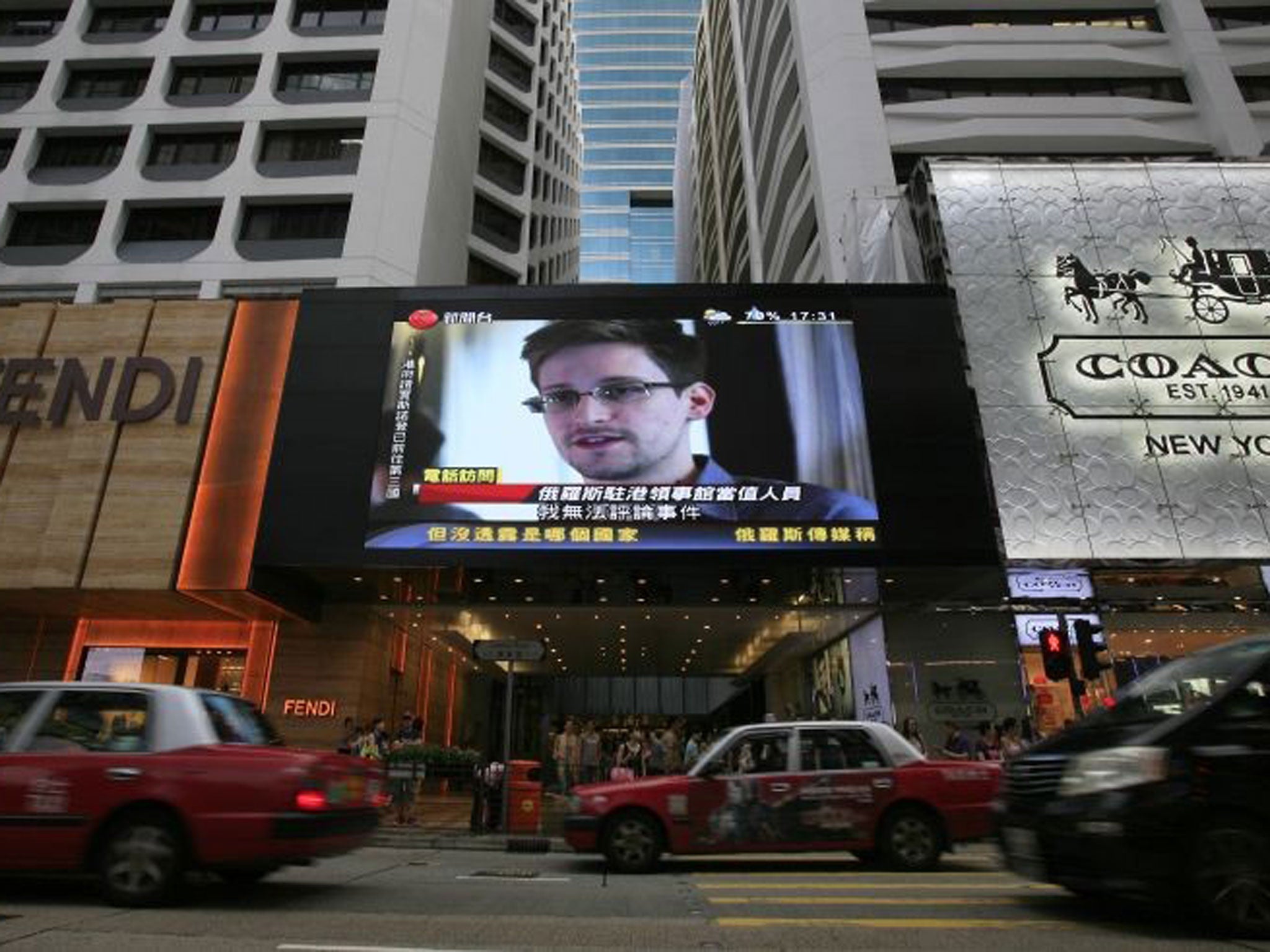IT firms lose billions after NSA scandal exposed by whistleblower Edward Snowden
Foreign clients fear sensitive data is not safe

Your support helps us to tell the story
From reproductive rights to climate change to Big Tech, The Independent is on the ground when the story is developing. Whether it's investigating the financials of Elon Musk's pro-Trump PAC or producing our latest documentary, 'The A Word', which shines a light on the American women fighting for reproductive rights, we know how important it is to parse out the facts from the messaging.
At such a critical moment in US history, we need reporters on the ground. Your donation allows us to keep sending journalists to speak to both sides of the story.
The Independent is trusted by Americans across the entire political spectrum. And unlike many other quality news outlets, we choose not to lock Americans out of our reporting and analysis with paywalls. We believe quality journalism should be available to everyone, paid for by those who can afford it.
Your support makes all the difference.The National Security Agency scandal exposed by whistleblower Edward Snowden has cost American technology companies billions of dollars in lost revenue as governments and companies in its important export markets of Asia refuse to entrust the handling of sensitive data to US companies. An analysis of financial filings from technology giants IBM and Cisco by The Independent on Sunday reveals the two businesses have seen sales slump by more than $1.7bn (£1.03bn) year-on-year in the important Asia-Pacific region since Mr Snowden revealed in June that US companies had been compromised by the NSA's intelligence-gathering in the clandestine Prism programme.
"US companies have seen some of their business put at risk because of the NSA revelations," said James Kelleher of equity research firm Argus Research.
China is high on the list of those countries now shunning US companies. Mr Kelleher said this may be payback for the US government saying it did not trust China-based Huawei to be independent from Chinese military and intelligence agencies. Despite operating in every other major country, Huawei, the world's biggest manufacturer of telecommunications equipment and a privately owned Chinese company, has been prevented from winning major communications contracts in the US.
IBM, one of the world's largest information technology suppliers, saw sales in its Asia-Pacific region drop 15 per cent from mid-August to mid-October, compared with the same period in 2012. That was twice as severe as the decline in "pre-Snowden" quarters.
Revenue declines at Cisco, the San Francisco-based communications manufacturer, were even more pronounced, with sales down 8.75 per cent in the quarter after the Snowden allegations, compared with just 2.84 per cent in the three months before.
Cisco warned in November that its sales could fall as much as 10 per cent this current quarter, as new orders in emerging markets declined. Chief financial officer Frank Calderone said that the NSA spying had been cause for a "level of uncertainty or concern" with Cisco's international customers, and part of the reason for weakening demand.
IBM declined to comment but stressed that it was not one of the companies named as having provided customer data to the NSA. Mr Kelleher said that the effects of the NSA allegations added to tougher sales conditions in China, whose economic growth rate has slowed during the year.
However, the American firms' revenue losses may not be confined to Asia. The German government has called for home-grown email and internet providers and there have been talks between several countries of creating network infrastructures that bypass the US.
A survey by the Cloud Security Alliance, an industry standards organisation in the US, predicted the Prism programme could cost cloud computing firms between $35bn and $45bn in lost orders over the next three years. It said that Canada, Germany, France and other European countries have rules requiring companies to guarantee data privacy.
Jean-François Audenard, the cloud security adviser to France Telecom, has said: "It's extremely important to have the governments of Europe take care of this issue.... If all the data of enterprises is going to be under the control of the US, it's not really good for the future of the European people." France has already invested ¤135m (£113m) in cloud technology with French businesses.
Earlier this month, technology company executives from America's biggest firms, including Apple, Google, Yahoo, Microsoft, Twitter and Facebook, had a meeting with President Barack Obama to rein in the electronic spying campaign amid concerns about its impact on their reputations.
Apple, which is among the companies asked by security services to hand over personal data, has been particularly insistent, recently demanding the right at least to explain how it co-operates with US intelligence. Currently, it is effectively gagged by them from explaining how much information on its customers it hands over to the NSA.
The reason behind Apple's concerns became clear last week when it emerged just how huge was the deal it was negotiating with China Mobile. The partnership it announced on Monday with the largest mobile phone carrier in the world will be worth billions of dollars of extra sales of the iPhone 5 and 5c.
Views are split among investors, but some analysts suggest that the deal could boost annual revenues by as much as $10bn.
Video: Report on NSA's master hacker division
Join our commenting forum
Join thought-provoking conversations, follow other Independent readers and see their replies
Comments